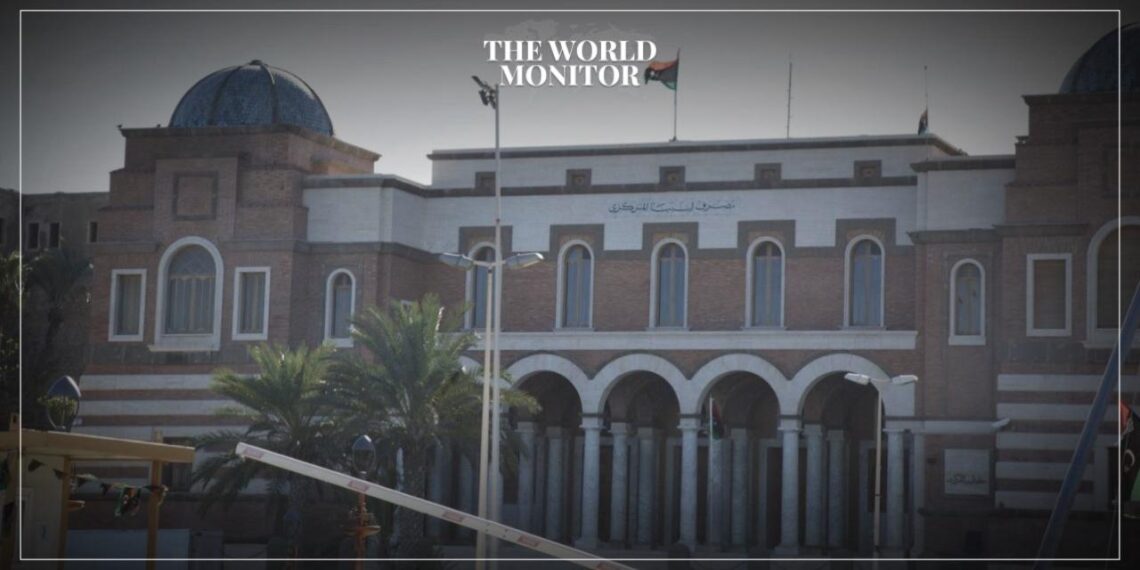The Central Bank of Libya, headquartered in Tripoli, announced a suspension of all operations following the abduction of a senior official on Sunday.
The bank stated it would not resume activities until the release of Musab Muslim, the Director of Information Technology, who an unidentified group kidnaped.
The Central Bank condemned the illegal methods employed by certain parties and highlighted that other officials had also received threats of abduction.
The bank emphasized that it would not restart its functions until Muslim is freed, his return to work is ensured, and such practices are halted with the intervention of relevant authorities.
Last week, Richard Norland, the US Special Envoy to Libya, warned that attempts to forcibly replace the bank’s leadership could result in Libya losing access to international financial markets.
Norland had previously met with Saddek El Kaber, the bank’s governor, to discuss concerns over armed factions gathering around the bank’s headquarters in Tripoli.
Norland stressed the need for transparent and inclusive negotiations to resolve Libya’s disputes over wealth distribution and to establish a unified budget based on consensus.
In Tripoli, the interim Government of National Unity, led by Abdel-Hamid Dbaiba, was established under a UN-supported process in 2021.
In contrast, the eastern region of Libya, where the parliament is based, operates under the Government of Stability, headed by Osama Hammad.






